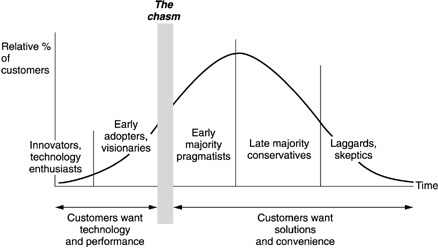It has been quite a long time without any post from me… I hope you haven’t missed me too much! I’ve been extremely busy these last weeks with travelling (music summit in Ibiza, the Venture Leader trip) and so on… But I’m back again to blogging!
I’ve been thinking a lot about sales in the last weeks. During my flight to the US, I’ve beed watching « The Wolf of Wall Street » (OK, I know it was released 6 months ago… I’ve never had time to watch movies !). It’s a really interesting story, especially on the selling point of view. Jordan Belfort (Leonardo di Caprio) is an expert in sales. It’s amazing to watch the techniques he’s using (even if we can argue that he’s selling with a really shortsight view). While teaching his friends how to sell anything, he used a very simple example : « sell me this pen ! ». The seller says to the potential buyer: « can you give me an autograph ? ». Buyer : « But I don’t have anything to write ! ». So he sold the pen. Create or show the need, sell the solution. Elementary business knowledge, no ? Powerful.
I’ve also written down some of his advice :
- You just have to pick up the phone, to call the customer.
- Raise enthusiasm ;
- Understand the decision obstacles ;
- Make the potential customer feel the emergency of taking a decision now ;
- Focus on closing the transaction.
Already heard this, no ?
In the last weeks, I have also observed how some established companies act. What I’ve found weird, is that they can actually sell any kind of basic (« shitty ? ») products, and customers are ready to pay ! As a startup, it’s always tricky to find your first customers and even more tricky to make them pay you real money (let’s do a pilot but with no money).
Why can established companies sell under-average products ? I think there are multiple reasons, that you should consider heavily as a startup entering in competition with them :
- They have a business relationship for years. They can bundle a new offering with what they already sell to the customer;
- They know the buyer for a longer time that they know you. You’re just a new guy popping up to the buyer, as many other before you;
- They know the customer’s needs and their decisions’ process ways better than you (even if you’re an expert in the fields, you often don’t know how they react internally to innovation or what their current internal schedule is);
- They have a brand, they are known. Risk not being there anymore in 6 months seems to be low (OK, it can be wrong if you see the story of Lehman’s Brothers)
It seems impossible for a startup to knock-down the elephant in the room. You’re just the little mouse, that they can squash even without noticing you were around !
As a startup or innovator, you’re often living 2-3 years ahead of the market (at least). Some of your potential customers don’t even know that they have a problem. How can you sell social media monitoring tools (for instance) to companies that do not consider social media as a relevant story ? As a startup, you’re often a technology evangelizer. But too much advance can kill you… as everyone is a sheep : once you get the first (relevant) references, that you have to find among innovators/early adopters, more than half of the market will follow. Let’s say you have identified 100 potential customers :
- Innovators segment accounts to 3% (assumption) : 3 customers
- Early adopters, 13% : 13 customers
- Early majority, 34% : 34 customers
- Late majority, 34% : 34 customers
- Laggards, 16% : 16 customers

If your product is very innovative, you’ll probably face the problem that they are between 3 and 16 potential customers ready to use your product. Crazy, no ?
How can you handle this as a startup ? Fill the sales funnel as much as possible, it is « only » a mathematic problem ! If your conversion rate is not that high at the beginning, the adoption chasm explains it, at least partially (if you have a bad solution, you have a bad solution).
How can you do ?
- Address the pain they have : sell a simple product that solve the customer need
- Lower the risk : show them you’ll still be there in 6 months
- People buy from people, not from corporations : meet early, create relationship (I love this quote : « relationships are the currency of business »).
- Create urgency to try your solution
- Establish credibility (!) through customers references, shared contacts (if your name come back often to their ears from various sources… it cannot hurt !), get industry veterans on board (to establish credibility as well as increasing your sales leads)
Sounds simple and obvious, no ? Yes and no. Sales are tricky. Not everybody can sell. It’s an art with a strong methodology that everybody can learn, I’m sure !
Please do not hesitate to share this article and to comment this post with your selling experiences !
